第3章 ACROSS THE PLAINS(3)
None can care for literature in itself who do not take a special pleasure in the sound of names; and there is no part of the world where nomenclature is so rich, poetical, humorous, and picturesque as the United States of America. All times, races, and languages have brought their contribution. Pekin is in the same State with Euclid, with Bellefontaine, and with Sandusky. Chelsea, with its London associations of red brick, Sloane Square, and the King's Road, is own suburb to stately and primeval Memphis; there they have their seat, translated names of cities, where the Mississippi runs by Tennessee and Arkansas; and both, while I was crossing the continent, lay, watched by armed men, in the horror and isolation of a plague. Old, red Manhattan lies, like an Indian arrowhead under a steam factory, below anglified New York. The names of the States and Territories themselves form a chorus of sweet and most romantic vocables: Delaware, Ohio, Indiana, Florida, Dakota, Iowa, Wyoming, Minnesota, and the Carolinas; there are few poems with a nobler music for the ear: a songful, tuneful land; and if the new Homer shall arise from the Western continent, his verse will be enriched, his pages sing spontaneously, with the names of states and cities that would strike the fancy in a business circular.
Late in the evening we were landed in a waiting-room at Pittsburg.
I had now under my charge a young and sprightly Dutch widow with her children; these I was to watch over providentially for a certain distance farther on the way; but as I found she was furnished with a basket of eatables, I left her in the waiting-room to seek a dinner for myself. I mention this meal, not only because it was the first of which I had partaken for about thirty hours, but because it was the means of my first introduction to a coloured gentleman. He did me the honour to wait upon me after a fashion, while I was eating; and with every word, look, and gesture marched me farther into the country of surprise. He was indeed strikingly unlike the negroes of Mrs. Beecher Stowe, or the Christy Minstrels of my youth. Imagine a gentleman, certainly somewhat dark, but of a pleasant warm hue, speaking English with a slight and rather odd foreign accent, every inch a man of the world, and armed with manners so patronisingly superior that I am at a loss to name their parallel in England. A butler perhaps rides as high over the unbutlered, but then he sets you right with a reserve and a sort of sighing patience which one is often moved to admire. And again, the abstract butler never stoops to familiarity. But the coloured gentleman will pass you a wink at a time; he is familiar like an upper form boy to a fag; he unbends to you like Prince Hal with Poins and Falstaff. He makes himself at home and welcome. Indeed, I may say, this waiter behaved himself to me throughout that supper much as, with us, a young, free, and not very self-respecting master might behave to a good-looking chambermaid. I had come prepared to pity the poor negro, to put him at his ease, to prove in a thousand condescensions that I was no sharer in the prejudice of race; but I assure you I put my patronage away for another occasion, and had the grace to be pleased with that result.
Seeing he was a very honest fellow, I consulted him upon a point of etiquette: if one should offer to tip the American waiter?
Certainly not, he told me. Never. It would not do. They considered themselves too highly to accept. They would even resent the offer. As for him and me, we had enjoyed a very pleasant conversation; he, in particular, had found much pleasure in my society; I was a stranger; this was exactly one of those rare conjunctures.... Without being very clear seeing, I can still perceive the sun at noonday; and the coloured gentleman deftly pocketed a quarter.
WEDNESDAY. - A little after midnight I convoyed my widow and orphans on board the train; and morning found us far into Ohio.
This had early been a favourite home of my imagination; I have played at being in Ohio by the week, and enjoyed some capital sport there with a dummy gun, my person being still unbreeched. My preference was founded on a work which appeared in CASSELL'S FAMILYPAPER, and was read aloud to me by my nurse. It narrated the doings of one Custaloga, an Indian brave, who, in the last chapter, very obligingly washed the paint off his face and became Sir Reginald Somebody-or-other; a trick I never forgave him. The idea of a man being an Indian brave, and then giving that up to be a baronet, was one which my mind rejected. It offended verisimilitude, like the pretended anxiety of Robinson Crusoe and others to escape from uninhabited islands.